How Leeds bucked the Yorkshire trend for voting to leave the European Union
The city was the only place in West Yorkshire, and one of only three in Yorkshire & the Humber alongside York and Harrogate, which came out pro-remain.
Even Sheffield, the region's second-biggest city, voted heavily in favour of leave; a moment indicating the final nails in the coffin for those hoping to remain firm friends with Brussels.
Advertisement
Hide AdAdvertisement
Hide AdWith Leeds' population of students and EU migrants, political pundits predicted that - like other northern metropolitan locations such as Liverpool and Manchester - the city would be pro-remain.
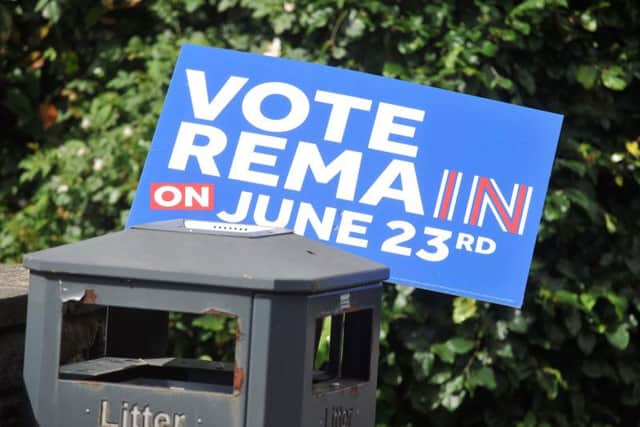

Yet despite voting as such, the almost 50-50 split still left many shocked.
"Leeds is a very metropolitan city - and it's very proud of that", said Joanne Chapman, an active campaigner for remain who grew up in Leeds and saw the city expand economically.
"I still don't want it to happen. We have so much to lose and literally nothing to gain."
Advertisement
Hide AdAdvertisement
Hide AdThree-and-a-half years later, Britain marks its departure from the EU today (Friday).
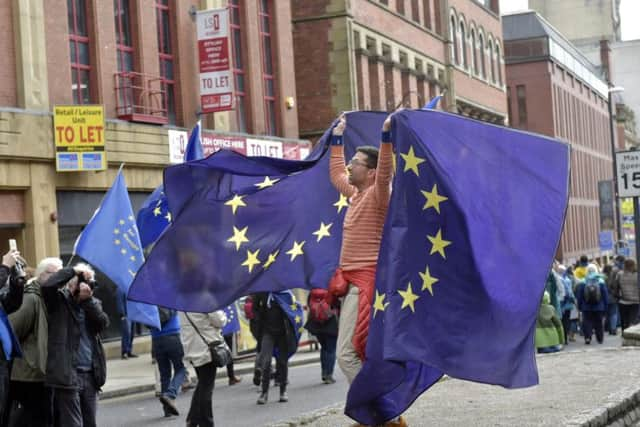

Boris Johnson will give a speech outside No10 at 11pm (midnight Brussels time), while here in Yorkshire, Brexit supporters will throw parties, despite the actual process of leaving having only just begun and likely to take several years to complete.
So why did Leeds buck the trend, albeit only marginally?
One reason is its high student population; Leeds has three universities and is home to around 60,000 students, many of whom were immovable members of the remain camp.
Students benefit a lot from being in the European Union.
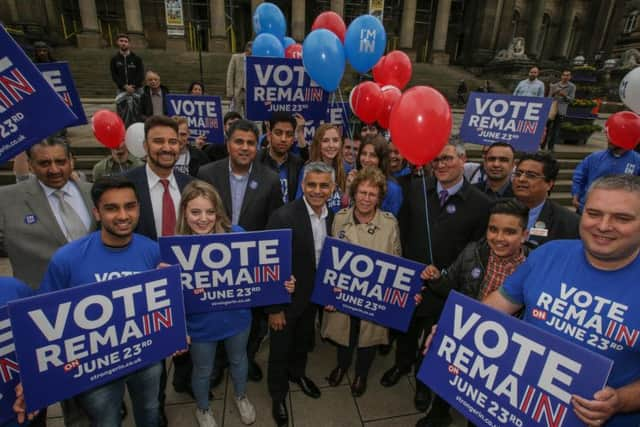

The Erasmus scheme, freedom of movement and University officials warning that leaving the EU could damage graduates' job prospects, meant that only 13 per cent of the country's students seemed to favour leaving, according to a survey by the Higher Education Policy Institute.
Advertisement
Hide AdAdvertisement
Hide AdJoanne, 51, spent a year in Belgium as a mature student with the University of Sheffield and said students are predominantly pro-EU for reasons such as Erasmus and freedom of movement meaning more job opportunities.
"You've got three universities in Leeds", she added.
"They've all benefited from the EU with the Erasmus scheme and funding."
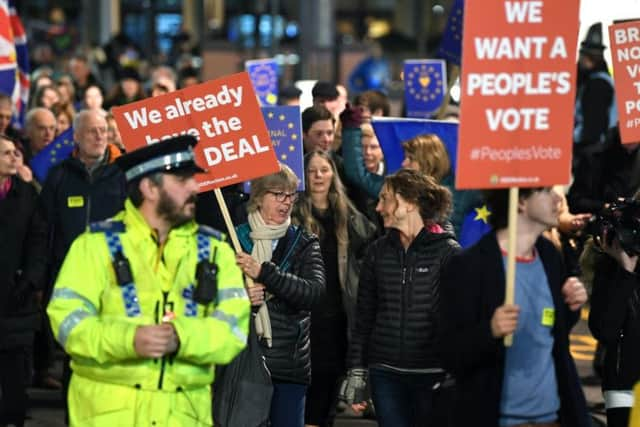

EU citizens also form a considerable, albeit waning, population in Leeds.
Migrants from across the channel work in our hospitals, drive our buses and have set up businesses since calling Leeds their home, and, regardless of their eligibility to vote in UK elections, many will no doubt be in favour of remaining part of the institution which has allowed them to come and work here.
Advertisement
Hide AdAdvertisement
Hide AdJoanne said: "There are lots of EU nationals in Leeds - people are used to being around other people of other cultures and don't see them as a threat. There was a lot of xenophobia involved in the campaign to leave the EU and I think in some areas, that was a big reason why people voted to leave."
But regardless of whether you voted to leave or remain, it's inarguable that Leeds has benefited from the Brussels cash pot.
Economists estimate the city has received approximately £300m from the EU since 2014, which is spent funding the universities, Leeds Teaching Hospitals, transport and local community projects.
Investment in the community was undoubtedly a major deciding factor for Leeds residents when it came to the ballot in 2016.
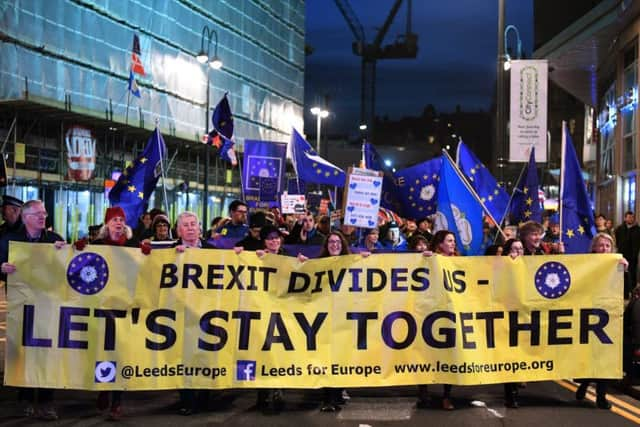

Advertisement
Hide AdAdvertisement
Hide AdMark Taylor is a Leeds native who has taken advantage of the freedom of movement, living in France for the past six years.
He voted by post to remain, saying the city is "just a bit more cosmopolitan and less insular than a lot of the North".
"Economically, it's not been hit as bad as some areas", he said.
Joanne added: "You can see the difference between Leeds and other towns - money has been spent there. When I first moved to Leeds it was horrendous.
Advertisement
Hide AdAdvertisement
Hide Ad"A lot of EU money has been spent improving the city. The Leeds Playhouse is just one example."
In spite of all this however, the almost 50-50 split in Leeds cannot be ignored.
The vote to remain was won by just 2,300 votes, which proved wrong any predictions of Leeds following the likes of heavily-remain London and Liverpool.
Leeds is evidently a city divided, with pockets of areas like Kirkstall, where many a window was bulletined with Remain posters, neighbouring the likes of Bramley, which was more in favour of leaving.
Advertisement
Hide AdAdvertisement
Hide AdKatrina Mortimer is a Morley resident who voted leave, and has one of Leeds' only pro-Brexit MPs, alongside Stuart Andrew.
She said: "I voted leave in 2016, I would vote the same way again.
"I am a more passionate leaver than I was at the beginning. It has highlighted the state of our own democracy and MPs who are self-serving.
"This country needs reform and will now have the powers to implement it."
Katrina added: "Friday is the start of a new Britain, in theory anyway. The official strings have been severed. For now that is enough."